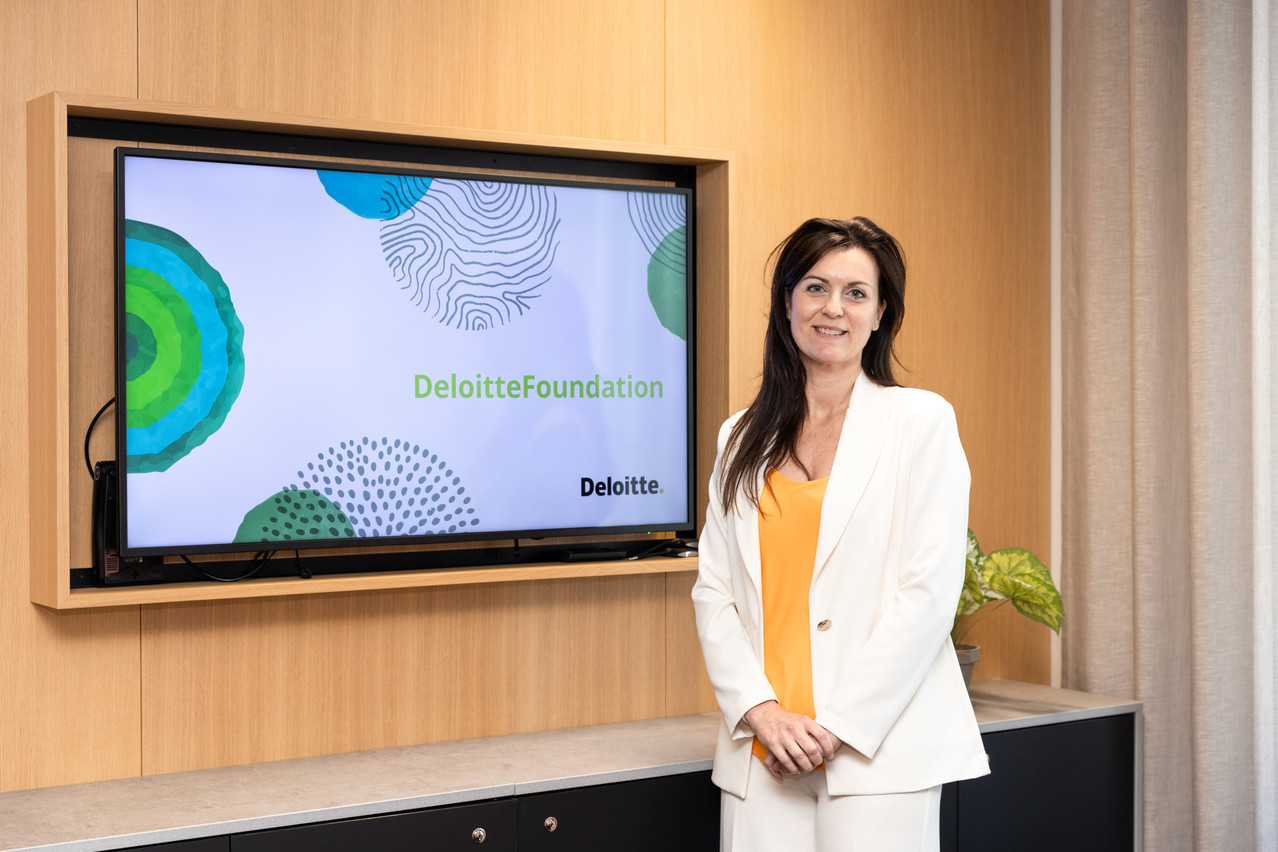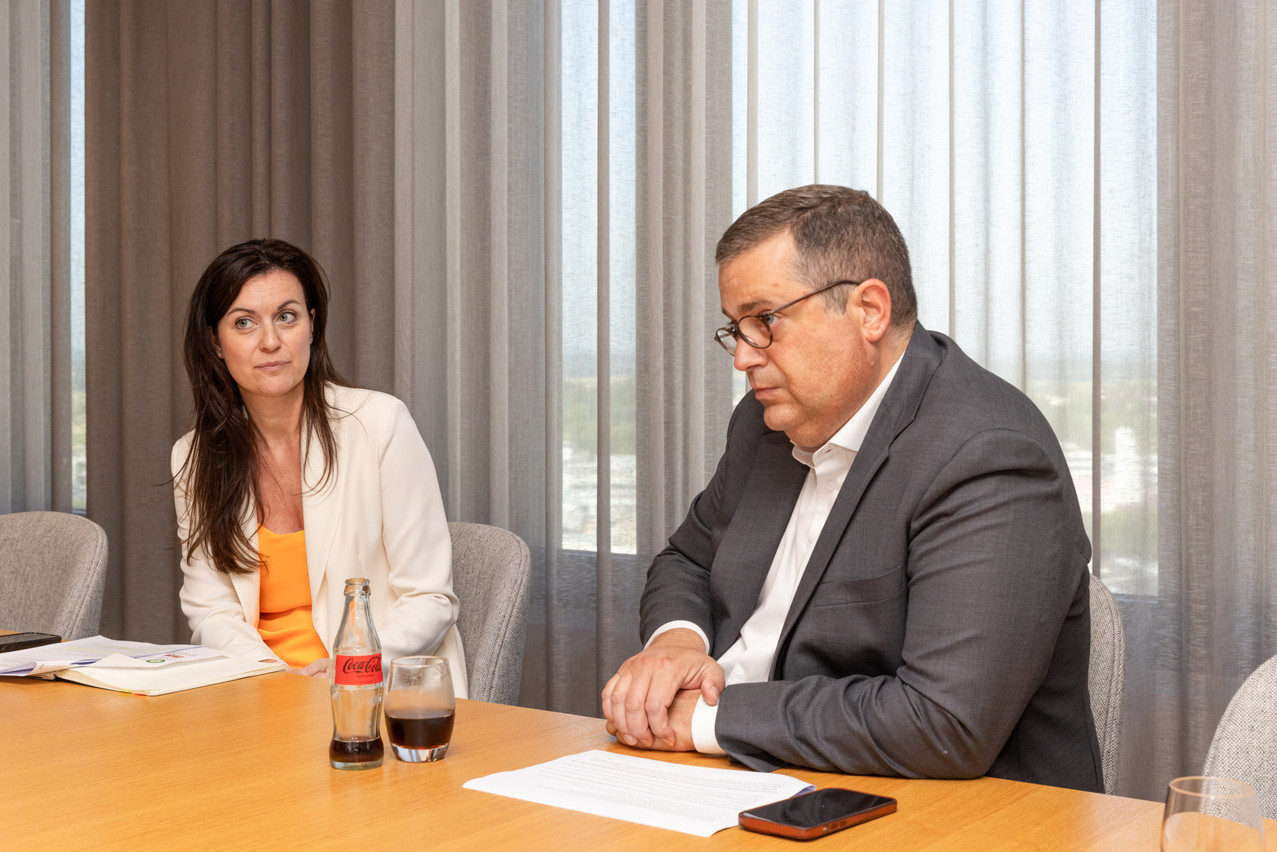Yusuf Yassin: What motivated Deloitte Luxembourg to establish the Deloitte Foundation, and why now?
: Over the past few years, we have experienced substantial growth, with the firm doubling in size approximately every eight to ten years. Our primary focus is on the impact we create, whether through our business operations, the services we provide to our clients, or the growth and development of our employees. Currently, we have numerous sporadic initiatives within both the marketplace and the communities we operate in. We felt the time was right to focus these initiatives in a foundation, to take a more structured approach and really push these initiatives to the next level.
What are the key objectives of the foundation and what impact do you hope to achieve through the foundation’s initiatives?
JP: We’re in a business where our biggest asset is our people. Around 2,800 people currently work for the firm. This is an asset we can put to the best use for our community. So we want the foundation to act as a conduit for putting those skills at the disposal of the wider communities. At the same time, there’s a pecuniary aspect because as a financial player, we do also make significant contributions to non-governmental organisations (NGOs) on the marketplace. Having a vehicle with proper governance, making sure that those means--be they financial or pro-bono hours--are allocated to areas where we believe we can make a real impact, these primarily being in education and climate.
: Indeed, our sustainability strategy is already running initiatives. The foundation is crucial for our sustainability strategy, allowing us to enhance our presence, engage our talented workforce and ensure a systematic and consistent approach. It serves as a well-structured platform with strong governance that aligns our actions with the United Nations’ sustainable development goals (SDGs). At the same time, our employees will play an important role and their commitment is integral to the foundation’s mission.
How does Deloitte Luxembourg currently engage with organisations in the philanthropic sector, and what will the foundation change?
FM: First, the governance approach, the platform and the structuring around that. Secondly, nurturing and expanding our relationships with NGOs and associations. By transitioning from occasional collaborations to long-term initiatives, we can create a lasting impact that is systemic and can be measured in our upcoming impact report. We are currently working on our fourth impact report, which is due out in a few months.
JP: The creation of the foundation is just one in a number of steps that have been taken over the past few years. As Francesca said, we’re about to issue our fourth impact report. And when we talk about our results, we’ve put greater focus on the impact we make in our communities, rather than talking about our financial performance, which, to be quite honest, is maybe meaningful to a few people, but not to the communities in which we operate. If you look at the way we’ve announced our results over the past years, we’ve put the emphasis on our impact report and on what we’ve been doing in our communities. The foundation is the next step of taking this purpose-led approach to the next level.

John Psaila says employees are encouraged to volunteer their time to Deloitte Foundation projects. Photo: Romain Gamba / Maison Moderne
You talked about governance. Is there going to be a board that oversees the foundation’s activities?
FM: Yes, there will be a board that includes myself, John and several other partners. We have already formed a task force that will be responsible for the day-to-day decisions. There is a board, a taskforce and a sounding board which will ensure our talents’ involvement and suggestions are reflected in the foundation’s initiatives.
Tell us more about the existing relationship with NGOs and why it’s important to have a foundation.
FM: Deloitte Luxembourg has actively collaborated with approximately 30 NGOs and associations over the past three years, primarily focusing on local and regional initiatives. These engagements are typically project-specific and conducted on a case-by-case basis. The establishment of the foundation will strengthen these relationships, facilitating longer-term projects through call for project proposals. This approach involves understanding the needs of NGOs and providing them with support. We also want to contribute our time and expertise, which comes naturally to us, as part of our DNA. Depending on the situation, we may also make financial donations when necessary, recognising that certain cases require investment. The idea is to nurture our relationship with NGOs and be more consistent in our approach.
Could you give us some insight into the scope and process for identifying the causes and projects that the foundation will support?
FM: As I mentioned we are currently working with 30 different NGOs. The causes vary and range from young entrepreneurship to cancer research. The partners we identified are linked to our sustainability strategy and the SDGs we have selected. We’ve selected six SDGs, one of them is climate. On the one side, we ourselves are making an effort to meet our net-zero target. On the other side, we want to engage with the ecosystem on this issue. There is education, which is a crucial pillar of our strategy. We are actively involved in several programmes aimed at supporting young entrepreneurship and helping individuals prepare for the job market. For instance, we offer assistance to young people who may not have easy access to university but still want to succeed professionally.
How will the Deloitte Foundation’s actions contribute to the UN’s SDGs, and are there any specific goals you are targeting?
JP: We have taken a very focused approach. We have selected six SDGs to focus on: climate, education, entrepreneurship, economic growth, reducing gender inequality and promoting good health. We have selected these SDGs because we believe we can make a difference. Instead of checking off all the SDGs, we want to focus our energy on these six and make a significant impact.
Do you have any specific goals you are targeting?
FM: We have some public KPIs and targets, for example in the field of education. By 2030, we aim to reach 19,000 individuals through our education programme. This is a defined target that we have set. As for other areas, we haven’t established additional KPIs at the moment. In terms of climate and engagement with the ecosystem, we have our targets for reducing carbon emissions, but it falls slightly outside the foundation’s primary focus. The foundation’s main goal is to engage with NGOs who are active on the ground.
JP: We will report the results and achievements of the foundation on an annual basis. These reports will be released around November each year. We will continue with our impact reports, of which the foundation will become a fundamental elements going forward.
Can you tell us about any projects the foundation plans to launch in the near future?
FM: We are still assessing various projects, but I can mention a couple that we are working on. One project is aimed at coaching students for the young entrepreneurship programme. In this initiative, our team coaches students, starting from high school level, to prepare them for the job market. We also provide support to individuals who need assistance drafting CVs and preparing for an interview. These individuals often come from disadvantaged backgrounds. Additionally, we have provided donations and support to people from Ukraine and Turkey. As a firm, and with the involvement of our employees, we wanted to contribute financially and also provide opportunities for individuals from these countries to start a new life here in Luxembourg.

Deloitte’s Francesca Messini says the foundation aims to reach 19,000 individuals through its education programme by 2030. Photo: Romain Gamba / Maison Moderne
Can Deloitte Luxembourg employees get involved or volunteer in the foundation’s projects?
FM: Yes. First, we establish connections with NGOs and understand their needs. Then we identify the profiles that are best suited to support these NGOs, taking into consideration their language skills and the project. Once we have made the necessary connections, the collaboration begins. We have a central team that coordinates this.
JP: Deloitte employees are encouraged to volunteer and we have a central team overseeing these initiatives. Volunteering is deeply ingrained in our firm’s culture, and we encourage our employees to dedicate at least four hours annually to a project of their choice.
FM: Over the last two years, our employees collectively volunteered for 2,144 hours, contributing to various programmes and initiatives. We aim to boost employee involvement, allowing them to spend four hours on a voluntary basis on projects that they can select, but that are aligned with our strategy. Employees can choose activities such as coaching or packing boxes of medicine. Another noteworthy project we launched this year, in collaboration with the European Commission, is focused on promoting inclusion of girls in the tech space. We had 30 girls in our office whom we coached to help them understand the field and explore potential careers.
How can NGOs interested in working with the Deloitte Foundation apply for support?
FM: We built a webpage where they can find our contact information. Some may already have our direct contact details. Additionally, they will be able to connect with the foundation’s task force and submit their call for projects. Projects submitted will then be reviewed internally, assessed and brought up to the board of directors for a final decision.
How do you envisage the Deloitte Foundation contributing to the overall legacy and reputation of Deloitte Luxembourg?
JP: I believe this is a natural next step in our evolution. It is consequence of the scale, which will be built upon qualities that are fundamental to our firm; so trust and excellence. The goal is to make an impact for our people, clients, and communities. Legacy is not important. It’s about creating a platform for the future, whereby all our previous initiatives, which were done rather sporadically, are now consolidated and centralised in one place. With proper governance in place, we can act as an accelerator and choose our initiatives in a more organised fashion. This will extend to alumni, former partners, and the wider community. I view the foundation as a continuation of past efforts to drive meaningful change in Luxembourg and the greater region.
